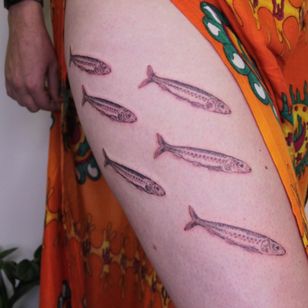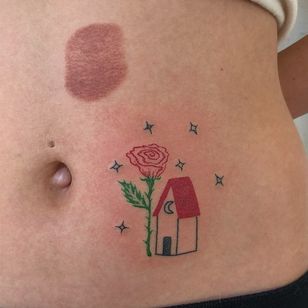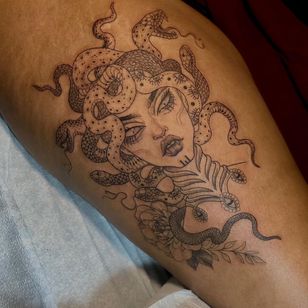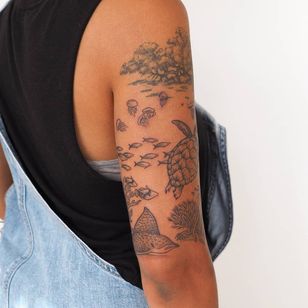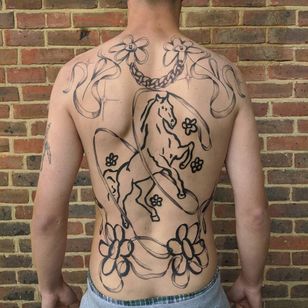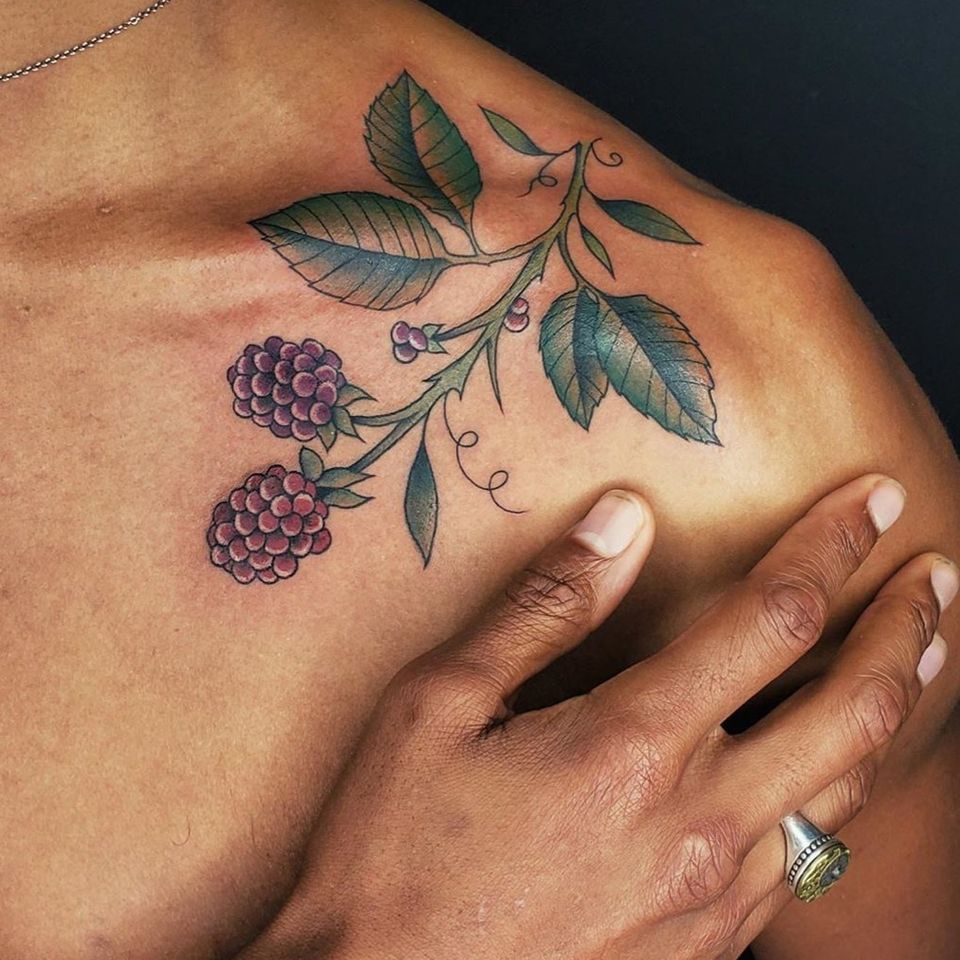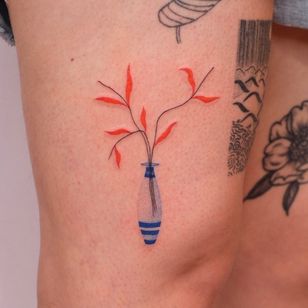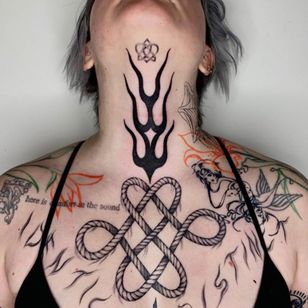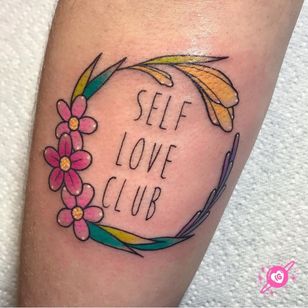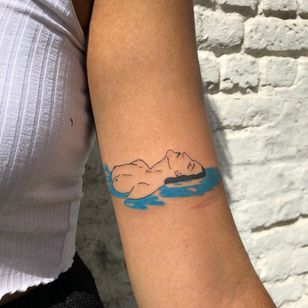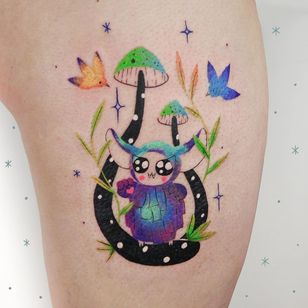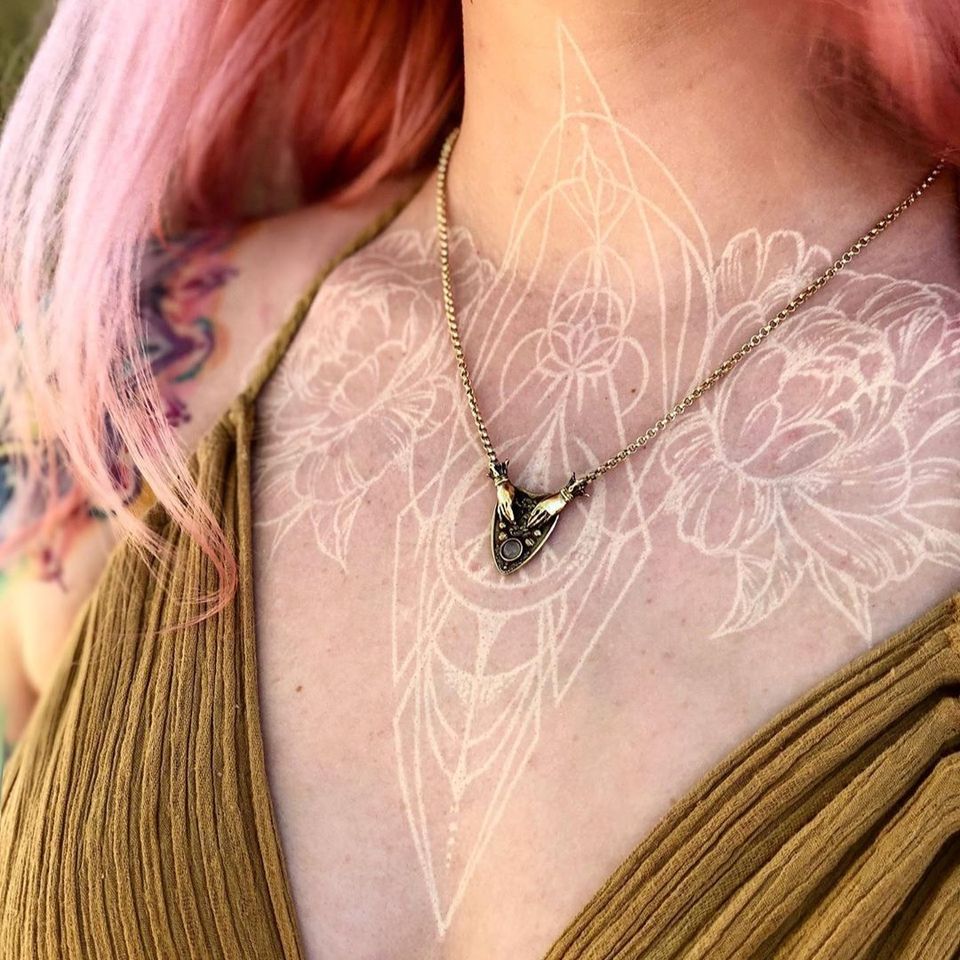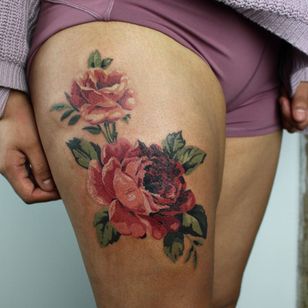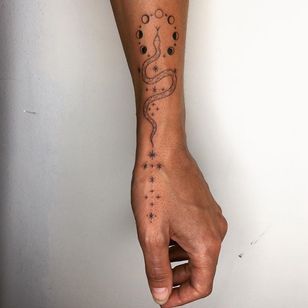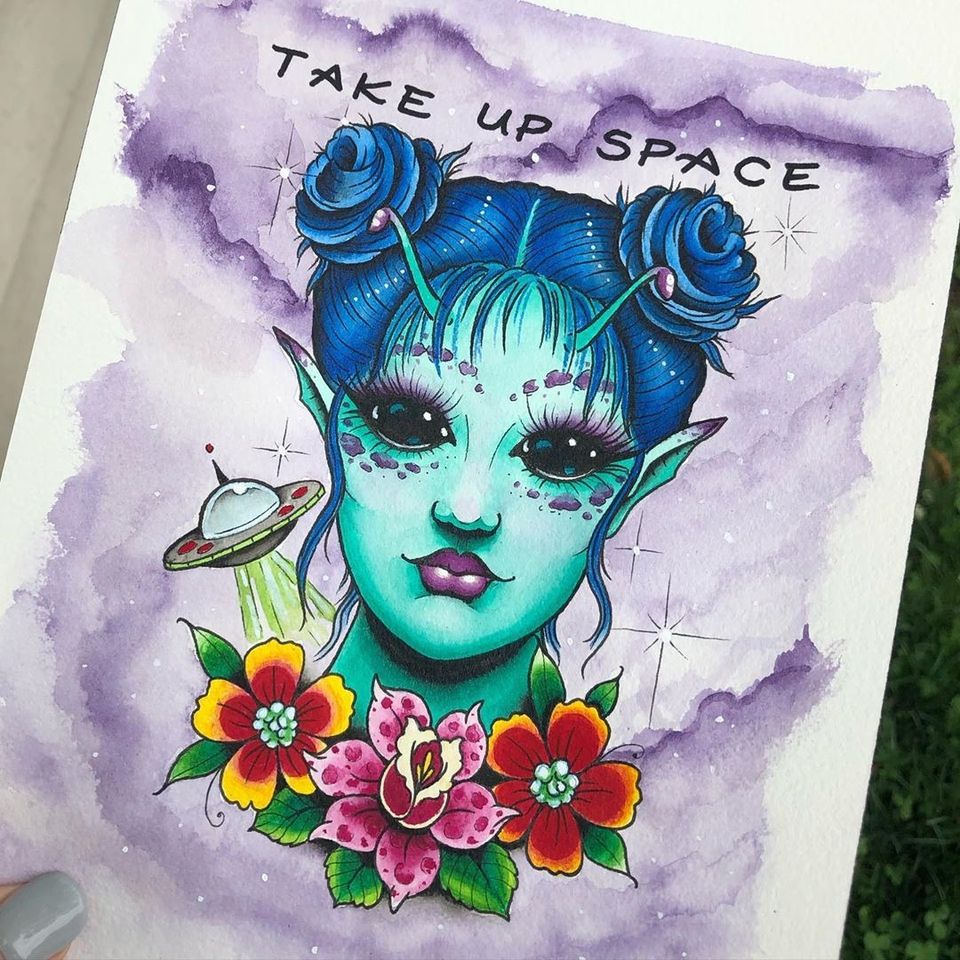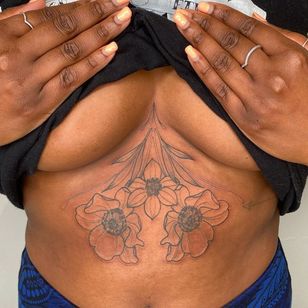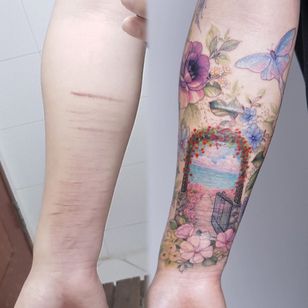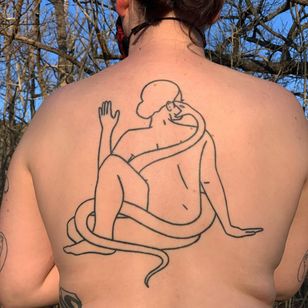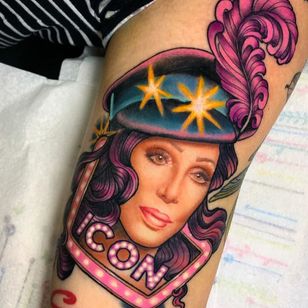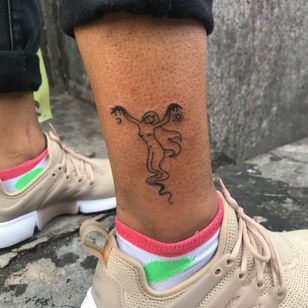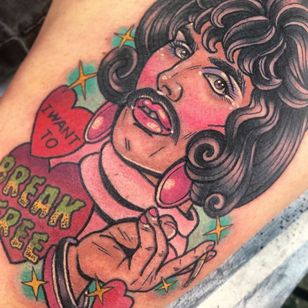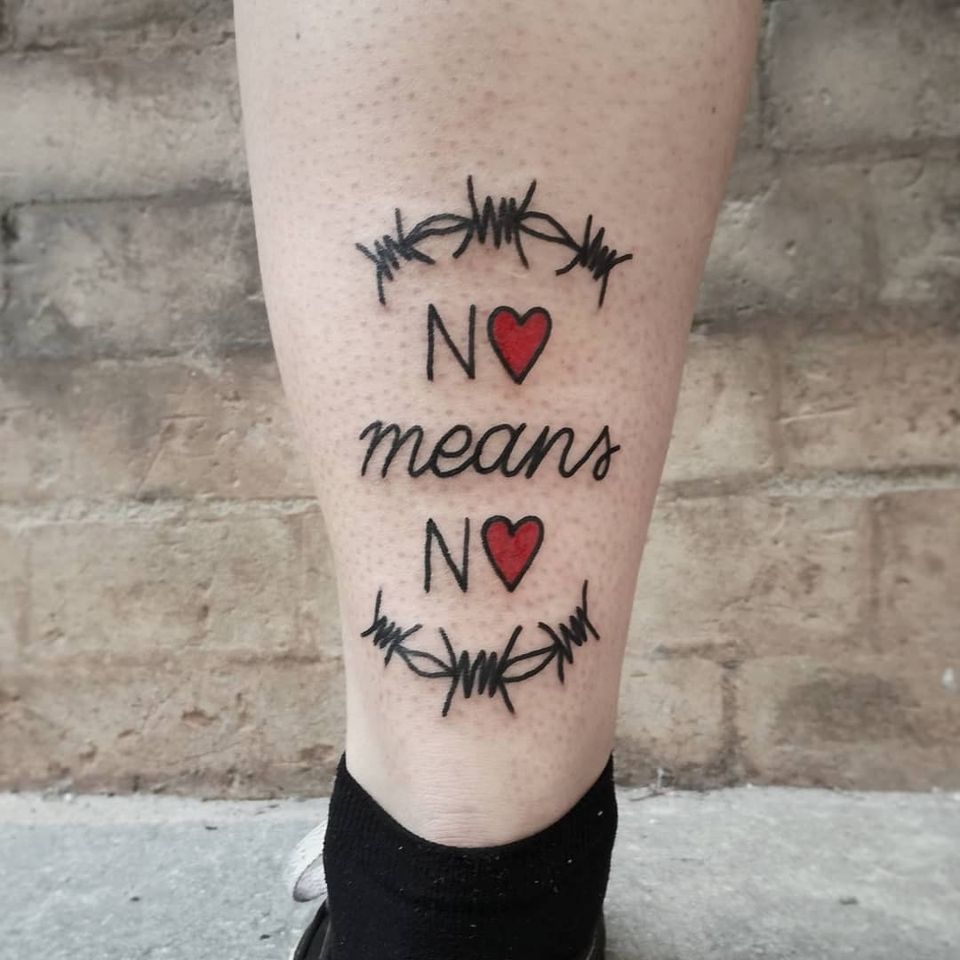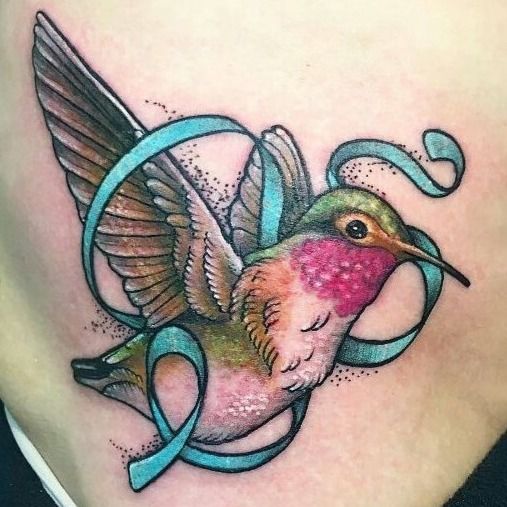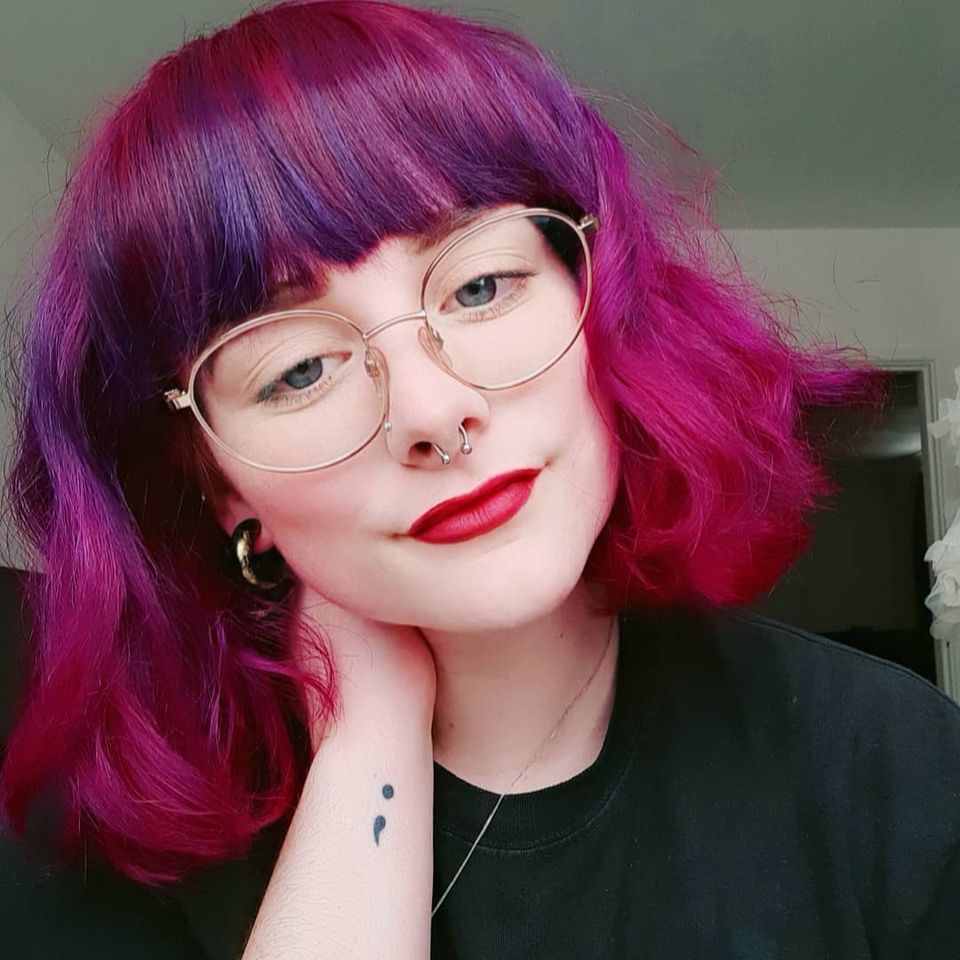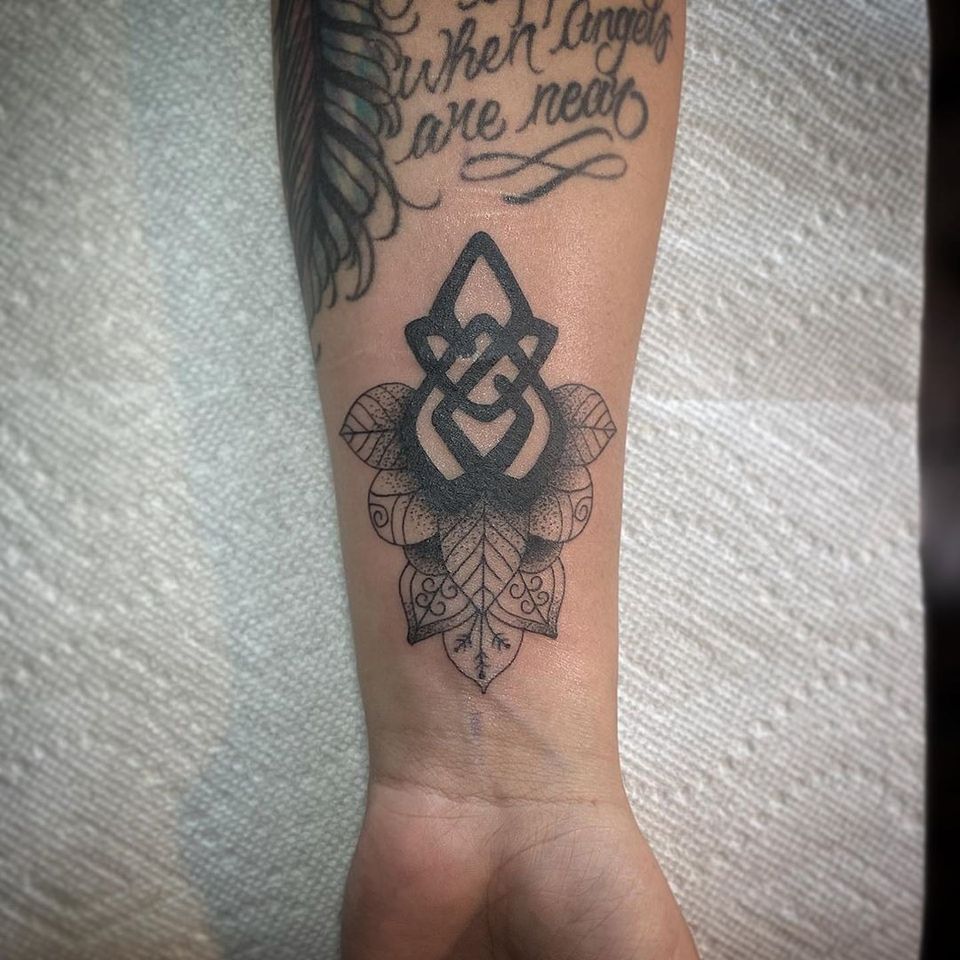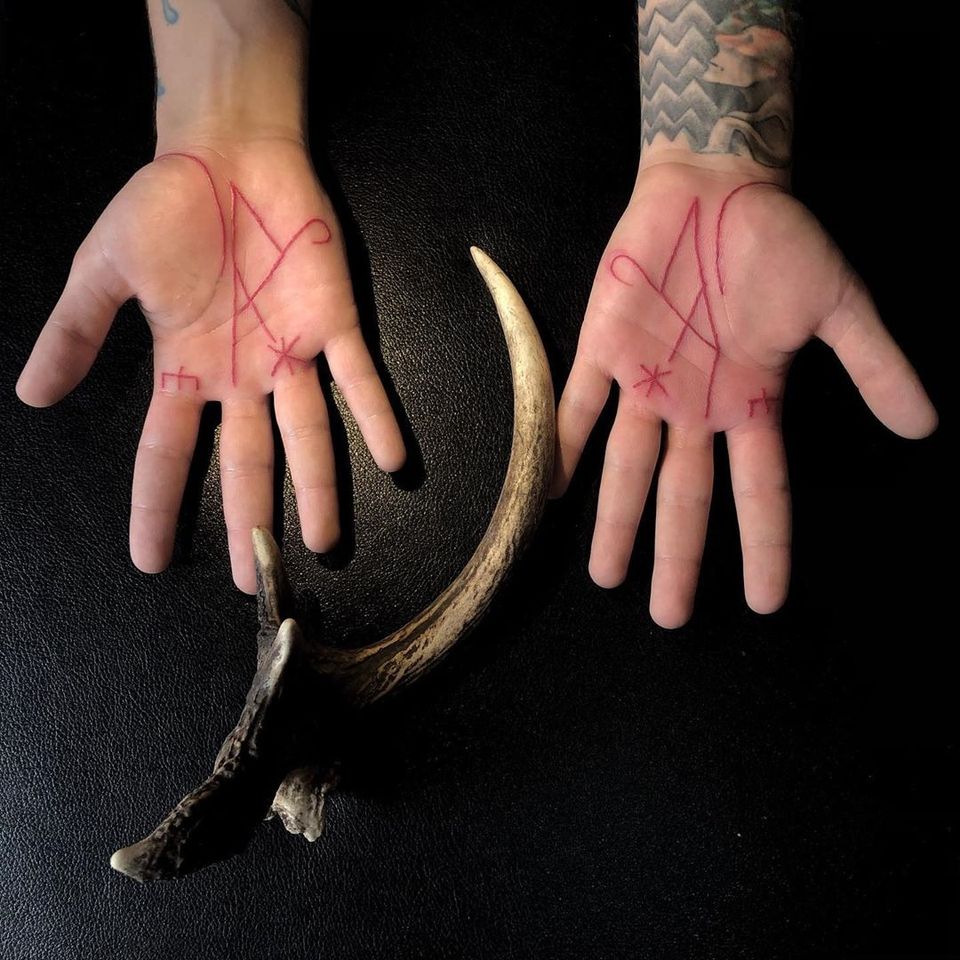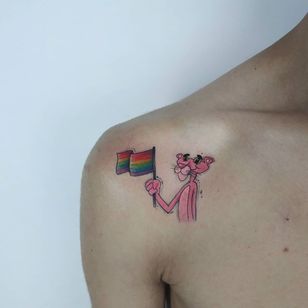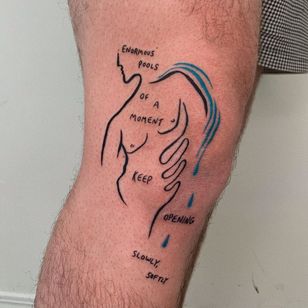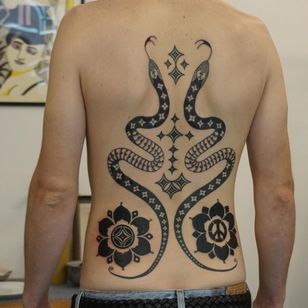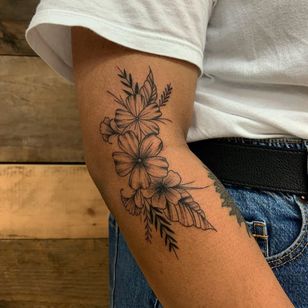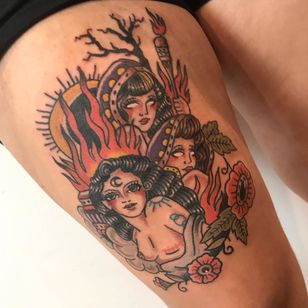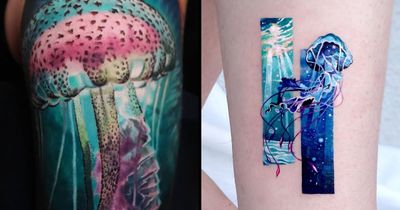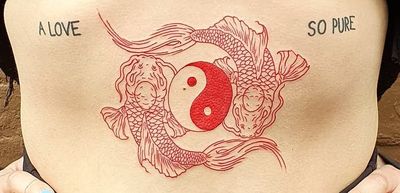Healing the Pain of Sexual Assault through Tattooing

Summary
Learn how survivors of sexual assault are shedding their “victimhood” through meaningful tattoos.
For those who have survived a sexual assault, life afterwards can feel unbearable. Your body seems as if it is no longer yours, the walk to your car at night is filled with palpable dread, your trust in human goodness feels extinct, and your faith in a just and swift legal system may be forever tainted. Living in this constant battleground of the mind and soul can push otherwise healthy people over the edge, resulting in addiction, eating disorders, and various mental health problems, even years after their assault.
Thankfully, tattooing is becoming recognized as a healthy and effective tool against the pain and stigma of sexual violence. Instead of shutting down or staying silent, more survivors than ever are choosing to fight back through powerful tattoos, designed to remind them of their strength, reclaim their bodies, and spread important messages to others who have suffered.
In this article we will explore some of the most empowering tattoos for sexual assault survivors as well as some of the top flash events and shops working to help end sexual violence and bring healing through art.
Disclaimer: Out of respect and protection, the tattoos within this article are not examples from actual sexual assault survivors. However, these pieces are examples of images we hope inspire you on your journey. Text written by Jennifer Donnelly and curated by Justine Morrow.
6 Sobering Statistics on Sexual Assault
Before we journey into the healing power of tattoos, it is perhaps important to share some of the most recent statistics on sexual assault, to gain a full perspective on how frequently it occurs, and how many lives it affects. Many people do not realize how prevalent sexual violence is within our societies because many victims are too terrified to speak out. It may be that the perpetrator is a powerful or well-liked person, or even a family member. It may be that they doubt anyone will believe them if they did. The assault may have taken place within an established relationship, or by a complete stranger, either way, many victims choose to stay silent out of fear, fear that they will have to recount their story hundreds of time, fear that everyone will know what happened to them, fear that they may never be believed.
Although many survivors don’t come forward, there is a wealth of clear cut statistics to help others know that they are not alone, and that work to showcase the epidemic sexual assault has become. Though these statistics can feel bleak, there is always hope for reform and healing. One powerful study published in the journal Tailor and Francis Online has discovered that getting a tattoo can be a profoundly healing experience for those who have been impacted by a sexual assault. December Maxwell, an author of the study, came forward to share her story as a survivor, stating that: “A sexual assault is an infringement on your body”, and that through tattooing, people are able to “shed the identity as a victim and move toward being a survivor.”
“The majority (90%) of rape victims are female”
“For every 1,000 rapes in the US, 995 perpetrators will go unpunished”
Artists and Organizations Helping Sexual Assault Survivors
Sexual assault can often feel as if it defines a person afterwards, but recent studies have shown that the process of marking one’s own body can provide survivors with renewed empowerment and healing. Prior to the discoveries of this study, many tattoo artists, shops, and organizations were already working to heal sexual trauma through the transcendence of art, providing survivors with resources and powerful tattoos to aid in their healing journey.
Still Not Asking for It
One of the tattoo community’s greatest assets in the fight against sexual assault is the flash event, “Still Not Asking for It”, started by tattoo artist Ashley Love and her partner Jessica Fisher. The two women embarked on this endeavor in 2015 with the hopes of creating meaningful resources, prevention, and awareness surrounding sexual assault and its survivors. To date, Still Not Asking for It has raised over $799,000 with 100% of the proceeds being donated. Still Not Asking for It hosts flash events at many participating tattoo shops around the world, allowing anyone interested to take part in their incredible movement.
Kenosha Tattoo Company
Wisconsin’s Kenosha Tattoo Company has become a loud and powerful voice against the brutality of sex trafficking, offering survivors free of charge cover-up tattoos to abolish their previous branding marks. In an interview with a local news station, the shop’s owner, artist Jon Principe, commented on the healing quality of tattoos on survivors, stating that, “They no longer have to look at this and get a daily reminder of what they went through, now they can look at it and see a beautiful piece of artwork.”
Wearing a symbol of ownership can have a deeply harmful effect on a woman’s ability to feel autonomous and free. At Kenosha Tattoo Company many of the women Principe tattoos have been marked with degrading symbols stemming from pimps and abusive male figures. When asked how survivors commonly react to the covering of these branding marks, Principe replied: “We get tears, we get tears, tears of joy every time. We do it because you can see the relief”.
Survivor’s Ink
Survivors Ink was created by trafficking survivor and formerly branded woman, Jennifer Kempton, as a resource to provide women with full scholarships to cover or remove branding tattoos. As a survivor herself, Kempton understands the pain and stigma that often accompanies such markings, and has devoted herself to helping women overcome their past traumas through reclaiming their bodies, and helping them heal via art.
Many of the women who have turned to Survivor’s Ink feel a sense of freedom, release, and catharsis after removing the dehumanizing brands. One survivor came forward to share this testimony to the Survivor’s Ink site, “It took me a long time to make the decision to cover up my tattoo, but when I actually did it felt like I was breaking every chain. I am no longer someone’s property”
How Tattooing Can Help Heal Survivors of Sexual Assault
One of the biggest hurdles for many survivors of sexual assault, is the battle to reclaim one’s own body. Recent studies have discovered that through the process of tattooing, survivors are able to take control of their narrative again, allowing them to feel empowered and more capable throughout the healing process. Whether a survivor chooses a tattoo that represents their rage, embodies their struggle, or signifies healing, it has been shown that these permanent pieces of art truly work to help survivors feel whole again, and begin anew.
A 2019 study focused around sexual assault victims and tattooing, conducted by Tailor and Francis Online, discovered the following about survivor’s motivation to get tattooed: “A fundamental theme that arose was the wish to gain control as the central decision-maker regarding the choice to be tattooed. More specifically, the authors found that the tattoos were done to overcome the feeling of powerlessness that is inherent to the experience of trauma and that the survivors used their tattoos as a means to reclaim personal ownership of their violated body, which was previously "owned" by the perpetrator (Maxwell, Thomas, and Thomas 2019).”
When exploring why tattooing can be so cathartic for sexual assault survivors, the study states: “Tattoos might serve as an appropriate platform to psychologically integrate the impact of the trauma by physically re-experiencing it through the process of being tattooed (i.e., the purposeful infliction of pain), allowing for further comprehension via the body in a controlled environment....”
Another example of tattooing’s healing capacity comes from musician Lady Gaga, who elected to get a “fire rose unity tattoo” to symbolize her strength and renewed healing after her rape at 19. Gaga designed and named the symbol herself, taking inspiration from DNA structure, the universal infinity sign, and her favorite flower, the white rose. She unveiled this new piece during her performance of the song “Till it happens to you”, a piece intended to shed light on the harrowing experience of sexual abuse. Following in her footsteps, many fans and sexual assault survivors decided to adopt this symbol as their own, using it as a tool in their healing journey.
Empowering Tattoos for Survivors of Sexual Assault
No Means No Tattoo
Many survivors of sexual assault have found power in this simple saying. The “no means no” tattoo works to express the importance of consent, while allowing the wearer to feel empowered through speaking out.
Sexual Assault Awareness Ribbon
The teal ribbon tattoo has become an internationally recognized symbol for sexual assault awareness. Many survivors have chosen to incorporate the teal ribbon into their tattoo, or use it as a stand-alone piece. Others have simply used the color teal within their design as a more personal marker of the struggles they have overcome. However you choose to utilize it, the teal ribbon is a powerful way to stand in solidarity and fight back against sexual assault.
Semicolon Tattoo
If you are searching for something simple and understated to represent your healing journey, the semicolon tattoo may be an ideal choice. Traditionally used to signify those that have overcome suicidal ideation, the semi-colon has been a symbol that has also resonated with victims of sexual assault, who often experience immediate or long-lasting depression afterwards. The symbol’s power stems from the concept that it represents the moving on to a new idea, or in the eyes of survivors, moving beyond the confines of their assault.
Fire Rose Unity Tattoo
Mentioned earlier in this article, the fire rose unity tattoo is a symbol that was created by Lady Gaga to garner awareness surrounding sexual assault. The symbol incorporates a white rose (traditionally signifying purity and innocence), the infinity symbol, and a small flame to embody the enlightenment and hope at the end of the healing process. Many survivors now wear this symbol on their skin as an ode to their struggles and a celebration of their victories.
Empowering Quotes
Many of us find strength in inspirational quotes, but for victims of sexual assault, these uplifting words may become like powerful mantras, designed to help aid in the healing process and remind survivors of the resilience and joy they still possess. Those who have used empowering quotes to heal from sexual assault recommend placing the tattoo where it can be seen every day.
Spiritual Symbols
Many survivors of sexual assault find healing and comfort from symbols that represent their spiritual belief systems. From Christianity to paganism, many women have elected to adorn their body with symbols that represent love, unity, and transcendence. These tattoos work to activate healing on a subconscious level, while providing a conscious reminder of peace and comfort.
Feminist Tattoos
Feminist tattoos have always helped re-awaken women to their power, while taking a powerful stance against male-dominated culture. For women who have experienced sexual violence, these symbols and sayings can be incredibly powerful, as they work to celebrate female strength while sparking social revolution.
Portraits of Heroes
Many of us have people we look up to whether it be Ru Paul or Mother Teresa. Sometimes having this person close to you, in portrait tattoo form, can give you something to look at when you need strength in a dark time. Our heroes can give us strength to fight against adversity, and be the best survivors out there: full of love and kindness for ourselves and others, while having hope that there are always brighter days to be had in the future.
Whether you are searching for a symbol of ferocity, or a gentle reminder of peace, tattoos possess the ability to help sexual assault survivors overcome trauma and reclaim their lives. Through choosing to mark their own skin, survivors are finding freedom and regaining a sense of self possession. Instead of being defined by the assault, survivors have chosen to create their own meaning through tattoos, often signifying their continued resilience and the power of healing.
If you or someone you know has been a victim of sexual assault, please don’t hesitate to reach out.
National Sexual Assault Telephone Hotline: 800-656-HOPE
1 in 6 Helpline for Men who were Sexually Abused or Assaulted: https://1in6.org/helpline/
Chat with an International Assault Support Specialist: https://hotline.rainn.org/online
Rape Crisis Network Europe: https://www.rcne.com/
